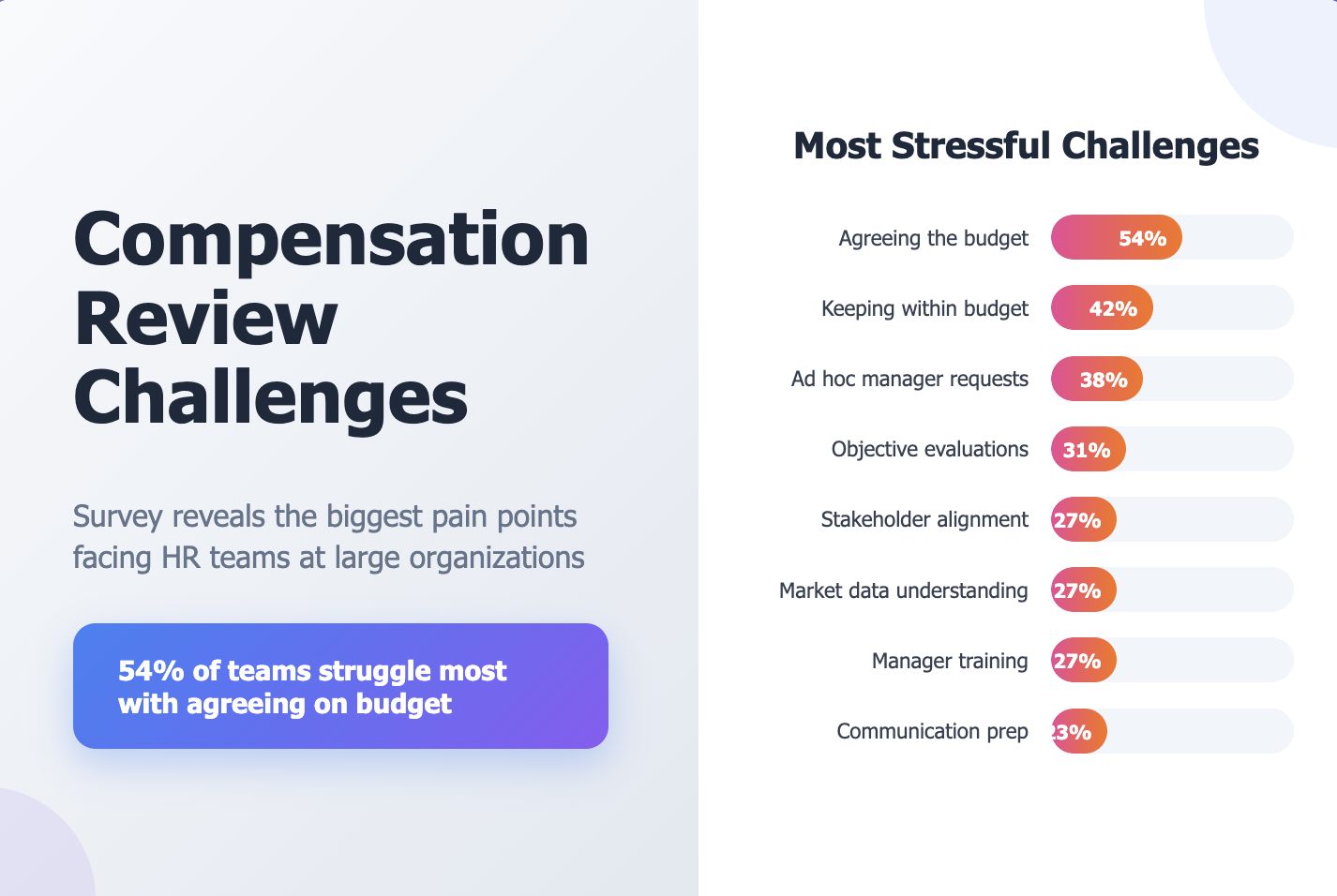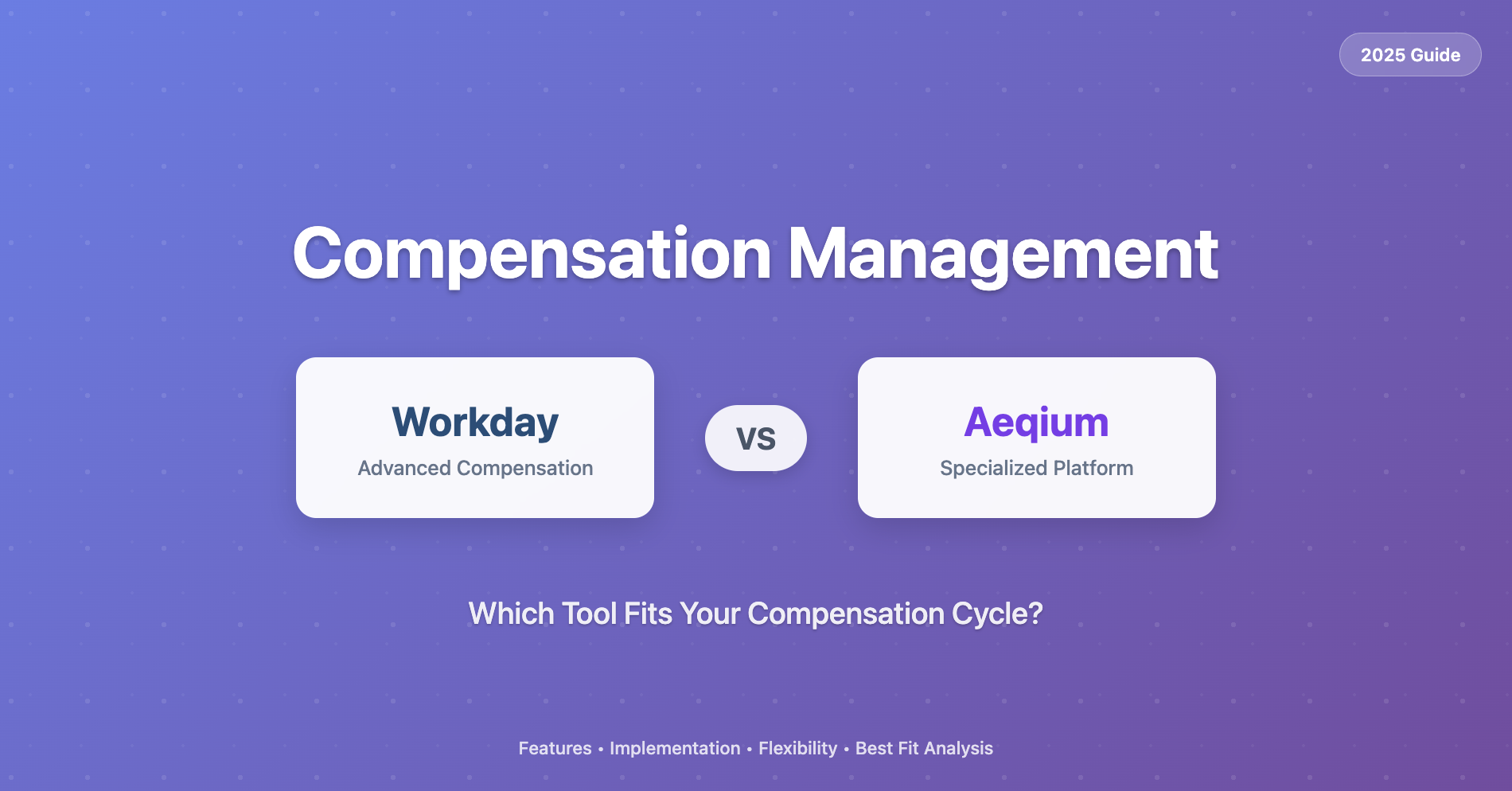What Is Total Compensation?

Total compensation or “TC” as it’s colloquially (and somewhat sarcastically) referred to across the tech industry, is a term referring to the sum total of all of the monetary compensation that an employee receives in a given year. In tech company circles, it has become a common term that allows employees at different companies to compare their compensation and determine whether they’re being paid a market rate.
The concept of total compensation is important for managers and executives to understand, as it’s the most common way for (non-sales) employees to assess the competitiveness of their pay. Compensation at technology companies frequently includes a heavy equity component and can vary significantly across companies or industry sub-sectors, which creates a number of different patterns:
- The equity portion of tech employees’ compensation can vary significantly more than other industries in which the vast majority of remuneration is base salary. This provides upside and has generated significant wealth in the last decade.
- However, equity-driven compensation can also be significantly less variable than other fields such as commission-driven sales or bonus-driven financial fields. Employees still draw generous base salaries, so their compensation is structurally unable to fall too far.
- Equity varies wildly – owning Google stock in 2008 produced amazing windfalls and also provided reliable liquidity along the way. At the same time, many private companies such as Instacart have had to reprice their once highly competitive pay packages as markets have fallen despite providing less liquidity while still private.
In this landscape, the concept of total compensation is the common language that employees use to discuss their pay and is a key concept for anyone who is managing, hiring, or retaining teams in the tech industry. If you aren’t used to thinking through compensation in this way, we recommend that you catch yourself up on this concept in order to remain competitive in the hiring market.
What Is Included in Total Compensation?
Total compensation isn’t an official metric, but there is a common approach across the technology industry for how it’s calculated and how to think about its variability over time.
Total compensation is typically calculated as the sum of:
- Base salary: Say, $100,000 per year.
- Expected bonus: For example, if your expected bonus is calculated at 12%, and you have a base salary of $100,000, your expected bonus would be $12,000
- Equity per year: For example, if you receive a $200,000 equity grant, you would gain $50,000 per year in equity
- Signing bonus: It’s common for people to amortize their signing bonus over 4 years (this matches the standard vesting period of most initial equity grants). For example, if you have a $10,000 signing bonus, you might consider $2,500 to be included as part of your total compensation in each of your first 4 years on the job.
- In some cases, employees also consider Employee Stock Purchase Plans or 401k matching to be a component of total compensation as well.
In this example, the employee’s compensation would be $100,000 (base salary) + $12,000 (12% target bonus) + $50,000 ($200,000 grant that vests over four years) + $2,500 (signing bonus divided by 4), for a total of $164,500 per year.
Using Total Compensation at Your Company
In order to standardize internal processes such as generating candidate offers and ensuring pay equity, many companies standardize their treatment of the different components of total compensation.
For example, a company might set up a total compensation system that includes:
- Different compensation or pay bands for both base salary and equity compensation.
- Standardized bonuses – such as 10% of base salary for most employees, and 25% of base salary for executives.
- Standardized rules for signing bonuses, such as disallowing signing bonuses below a certain level of seniority or ignoring.
- A regimented equity refresh plan that ensures consistency across employees.
By instituting these systems, you can ensure that you are accomplishing your compensation goals in a way that is standardized and easy to administer.
Factors That Impact Total Compensation
Total compensation can be significant – for example, the $164,500 above wouldn’t be atypical for a new college graduate at many tech companies. But there are a few factors that can significantly impact the overall value that employees will realize.
The most important factor to consider when looking at total compensation is that the variability of a company’s fortunes (or the broader markets) can have very large impacts on one’s effective pay. For example, activist investors have recently approached Alphabet and encouraged them to lower compensation for certain roles, citing that Alphabet’s median compensation in 2021 was nearly $300,000. This number almost certainly benefited from Google’s significant stock appreciation leading into the 2021 time period.
Additionally, there are very significant differences between total compensation at public and private companies. A grant for $10,000 of Alphabet stock might fall to $5,000, or even $1,000, but is very unlikely to fall all the way to zero. It’s just very unlikely that Alphabet, a highly profitable public company, will go entirely bankrupt and have their stock go to $0 – and even if a company like Alphabet ran into significant hard times, it could probably find an acquirer on the way down.
On the other hand, a $10,000 grant at a private startup could unfortunately be worth nothing in the long run if the startup fails to reach a liquidity event or is unable to provide options for secondary stock sales. Many companies that once had very high valuations have experienced reversals of fortune and gone out of business. As a result, candidates and hiring managers should both remain cognizant of the fact that two offers whose total compensation is ostensibly identical might be anything but in practice.
Conclusion
Overall, total compensation is a key concept when considering your total compensation strategy. By familiarizing yourself with how total compensation is calculated, you’ll be able to ensure that you’re crafting offers and pay packages that will help you to grow and retain your team.




